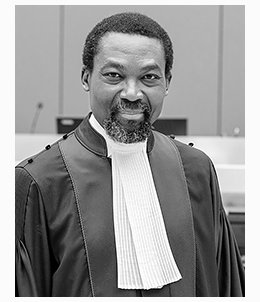
 In this episode Janina Dill of the University of Oxford and Adil Haque of Rutgers Law School return to the podcast to address the question of whether it is possible now, while hostilities are still ongoing, to assess whether some aspects of the IDF’s conduct of hostilities may be in violation of IHL. The question is germane because many argue that one cannot assess such violations until all of the evidence is available and has been analyzed, and we discuss why this may not be so. And the focus on the IDF, without delving into the violations of Hamas and Islamic Jihad, is justified because there is really no debate over the violations and war crimes committed by either of these – but there remains quite robust debate over whether the IDF is acting in compliance with IHL, and the issue is highly relevant now for countries that are supplying Israel with weapons. In the discussion we begin with explanations of the core principles of IHL, namely distinction, proportionality, and precautions in attack, as well as the treaty provisions that codify them, and how these are subject to interpretation. We also explore how the concept of intent, as well as the standards of evidence, should be understood differently depending on whether one is assessing collective violations of IHL or trying to prosecute individuals for war crimes, and whether one is considering the operation of law as an ex ante modifier of behavior, or as ex post mechanism for imposing accountability. We then dive into a discussion of some of the specific aspects of IDF conduct of hostilities, with a focus on strikes on civilian targets, and the use of indiscriminate weapons (or use of inappropriate weapons causing indiscriminate harm) in civilian areas, as well as how one should best understand the IDF’s use of warnings, the use of AI in targeting decisions, and the claims that Hamas is employing human shields. There is much to unpack, and there is much that we could not get to, but it is fascinating if sobering analysis.
In this episode Janina Dill of the University of Oxford and Adil Haque of Rutgers Law School return to the podcast to address the question of whether it is possible now, while hostilities are still ongoing, to assess whether some aspects of the IDF’s conduct of hostilities may be in violation of IHL. The question is germane because many argue that one cannot assess such violations until all of the evidence is available and has been analyzed, and we discuss why this may not be so. And the focus on the IDF, without delving into the violations of Hamas and Islamic Jihad, is justified because there is really no debate over the violations and war crimes committed by either of these – but there remains quite robust debate over whether the IDF is acting in compliance with IHL, and the issue is highly relevant now for countries that are supplying Israel with weapons. In the discussion we begin with explanations of the core principles of IHL, namely distinction, proportionality, and precautions in attack, as well as the treaty provisions that codify them, and how these are subject to interpretation. We also explore how the concept of intent, as well as the standards of evidence, should be understood differently depending on whether one is assessing collective violations of IHL or trying to prosecute individuals for war crimes, and whether one is considering the operation of law as an ex ante modifier of behavior, or as ex post mechanism for imposing accountability. We then dive into a discussion of some of the specific aspects of IDF conduct of hostilities, with a focus on strikes on civilian targets, and the use of indiscriminate weapons (or use of inappropriate weapons causing indiscriminate harm) in civilian areas, as well as how one should best understand the IDF’s use of warnings, the use of AI in targeting decisions, and the claims that Hamas is employing human shields. There is much to unpack, and there is much that we could not get to, but it is fascinating if sobering analysis.
Materials:
– Tom Dannenbaum and Janina Dill, “International Law in Gaza: Belligerent Intent and Provisional Measures,” American Journal of International Law, (forthcoming, 2024)(link to SSRN version).
– United Nations Human Rights Council, Human Rights Situation in the Occupied Palestinian Territory, Including East Jerusalem, and the Obligation to Ensure Accountability and Justice – Report of the High Commissioner for Human Rights, Feb. 23, 2024, U.N. Doc.No. A/HRC/55/28.
– United Nations Human Rights Council, Report of the Independent International Commission of Inquiry on the Occupied Palestinian Territory, Including East Jerusalem, and Israel, May 27, 2024, U.N. Doc.No. A/HRC/56/26.
– Human Rights Watch, Gaza: Israelis Attacking Known Aid Worker Locations: End Unlawful Attack, Ensure Accountability, May 14, 2024.
– Amnesty International, Israel/OPT: Israeli Air Strikes that Killed 44 Civilians Further Evidence of War Crimes – New Investigation, May 27, 2024.
– Yuval Abraham, “‘Lavender’: The AI Machine Directing Israel’s Bombing Spree in Gaza,” +972 Magazine, Apr. 3, 2024.
– “Israel Defence Forces’ Response to Claims About Use of ‘Lavender’ AI Database in Gaza,” The Guardian, Apr. 3, 2024.
– Israel Ministry of Foreign Affairs, Hamas-Israel Conflict 2023: Key Legal Aspects, Nov. 2, 2023.
– John Ramming Chappell, “Key Takeaways from Biden Administration Report on Israeli Use of US Weapons,” Just Security, May 11, 2024.
Reading Recommendations:
– Yousuf Syed Khan, “The Directive to Evacuate Northern Gaza: Advance Warning or Force Displacement?,” Just Security, Oct. 19, 2023.
– Eliav Lieblich, “On Civilians’ Return to North Gaza: What International Humanitarian Law Requires,” Just Security, Feb. 12, 2024.
– Brianna Rosen, “Unhuman Killings: AI and Civilian Harm in Gaza,” Just Security, Dec. 15, 2023.
– Tom Dannenbaum, “The Siege of Gaza and the Starvation War Crime,” Just Security, Oct. 11, 2023.
– Mark Schack, “In Defence of Preliminary Assessments: Proportionality and the 31 October Attack on the Jabalia Refugee Camp,” EJILTalk!, Nov. 8, 2023.
– Janina Dill, “Our Shared Moral Horror,” EJILTalk!, Oct. 13, 2023.
 In this episode
In this episode  A conversation with
A conversation with  In this episode, I speak with
In this episode, I speak with  In this episode, I speak with
In this episode, I speak with  In this episode, I speak with
In this episode, I speak with  In this episode I speak with
In this episode I speak with